Edward Hall’s cultural factors Edward Twitchell Hall Biography


Edward Hall's cultural factors Edward Twitchell Hall
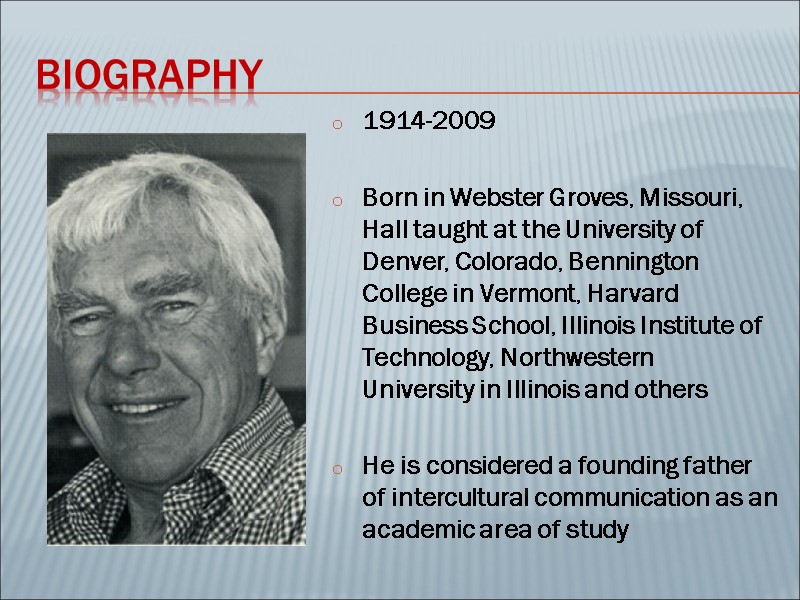
Biography 1914-2009 Born in Webster Groves, Missouri, Hall taught at the University of Denver, Colorado, Bennington College in Vermont, Harvard Business School, Illinois Institute of Technology, Northwestern University in Illinois and others He is considered a founding father of intercultural communication as an academic area of study
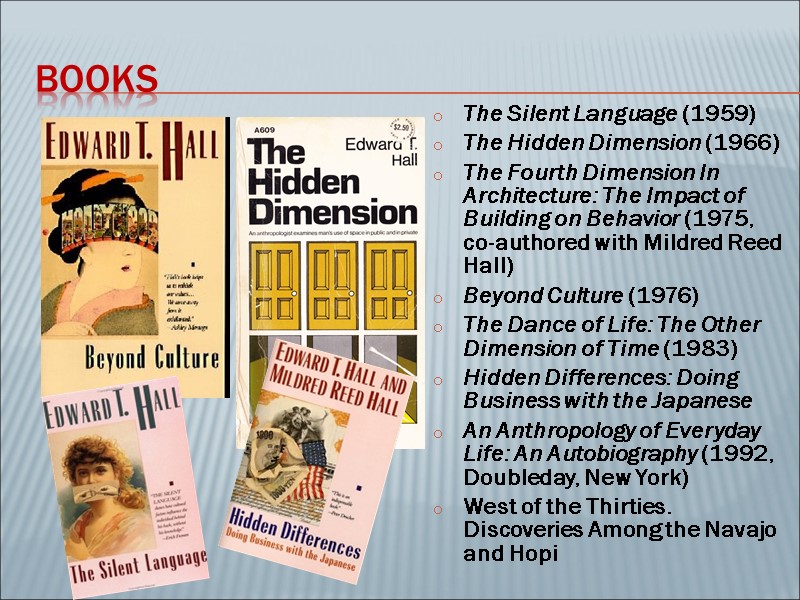
Books The Silent Language (1959) The Hidden Dimension (1966) The Fourth Dimension In Architecture: The Impact of Building on Behavior (1975, co-authored with Mildred Reed Hall) Beyond Culture (1976) The Dance of Life: The Other Dimension of Time (1983) Hidden Differences: Doing Business with the Japanese An Anthropology of Everyday Life: An Autobiography (1992, Doubleday, New York) West of the Thirties. Discoveries Among the Navajo and Hopi
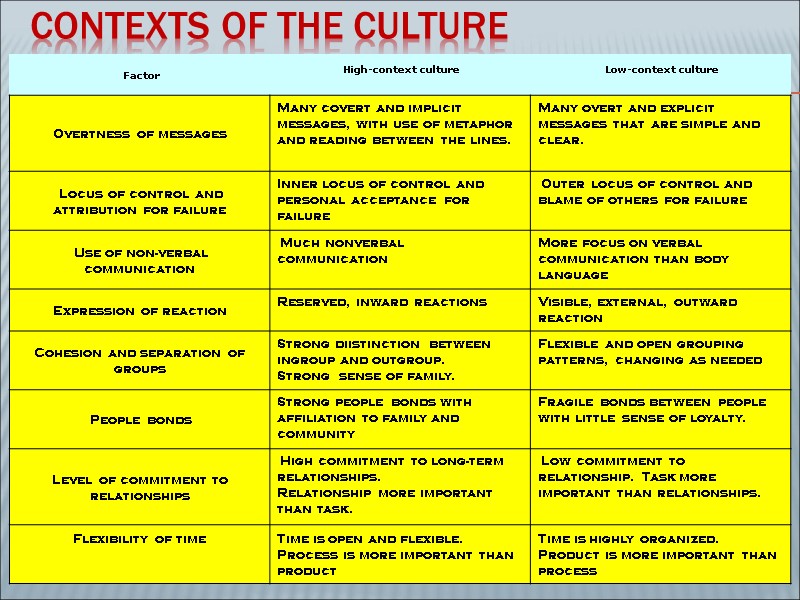
Contexts of the Culture
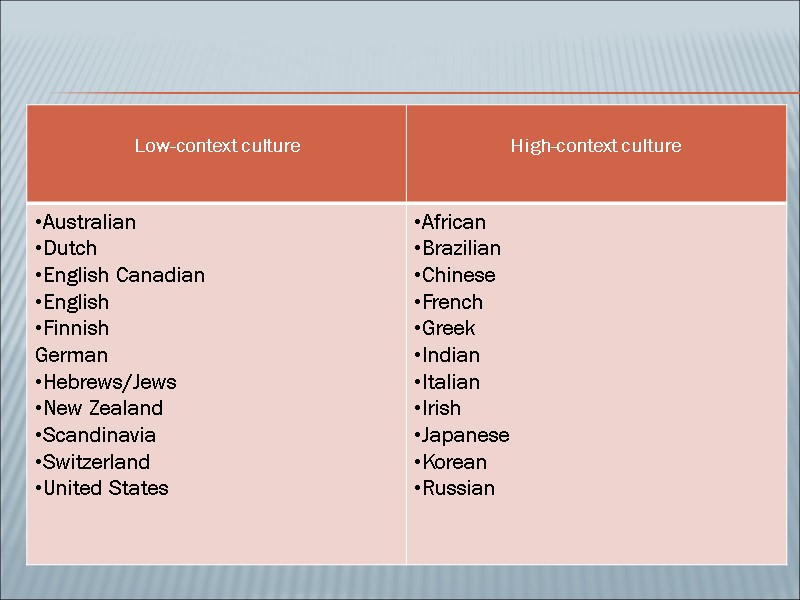
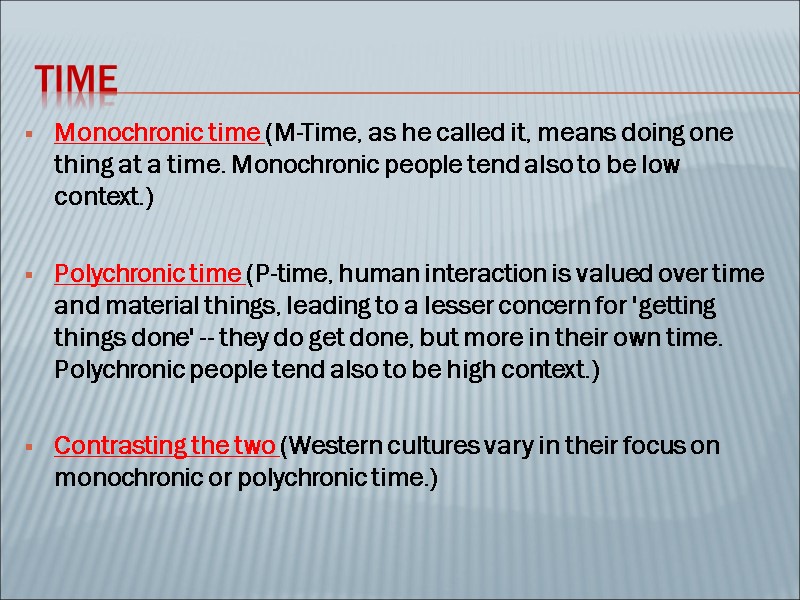
Time Monochronic time (M-Time, as he called it, means doing one thing at a time. Monochronic people tend also to be low context.) Polychronic time (P-time, human interaction is valued over time and material things, leading to a lesser concern for 'getting things done' -- they do get done, but more in their own time. Polychronic people tend also to be high context.) Contrasting the two (Western cultures vary in their focus on monochronic or polychronic time.)
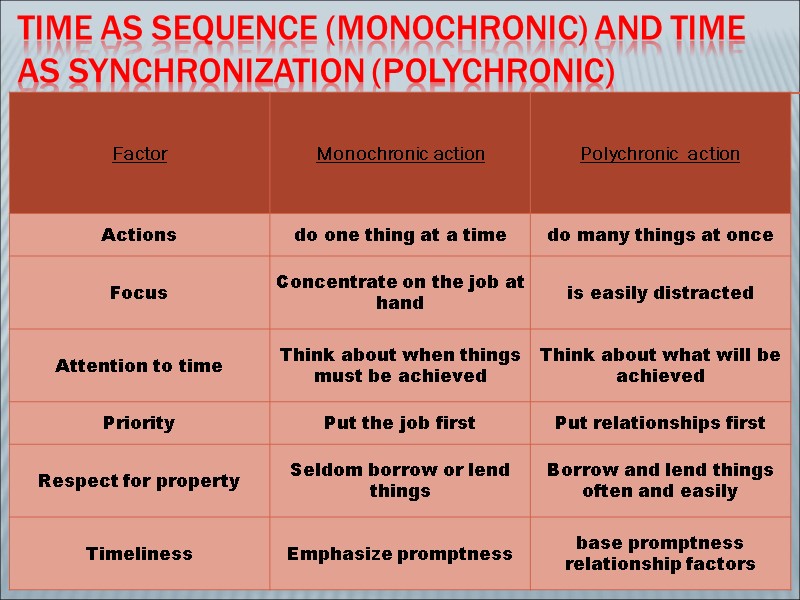
time as sequence (monochronic) and time as synchronization (polychronic)
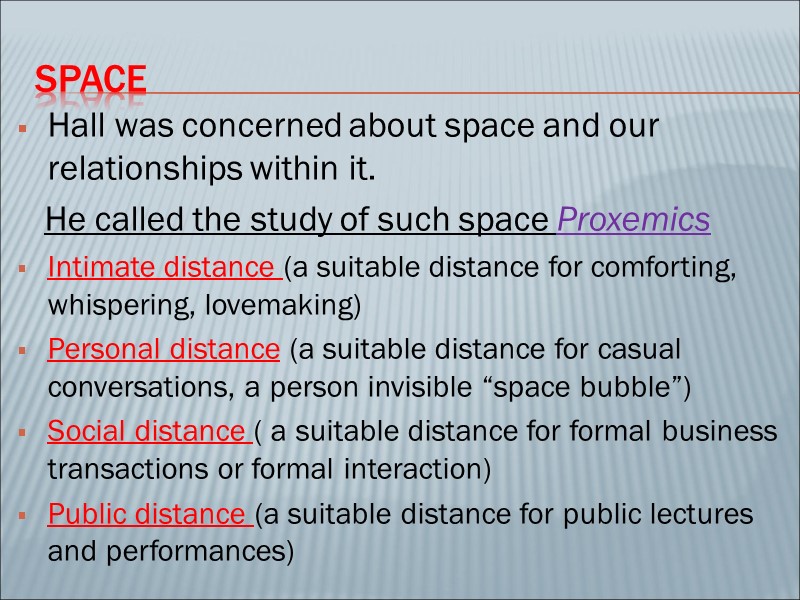
Space Hall was concerned about space and our relationships within it. He called the study of such space Proxemics Intimate distance (a suitable distance for comforting, whispering, lovemaking) Personal distance (a suitable distance for casual conversations, a person invisible “space bubble”) Social distance ( a suitable distance for formal business transactions or formal interaction) Public distance (a suitable distance for public lectures and performances)
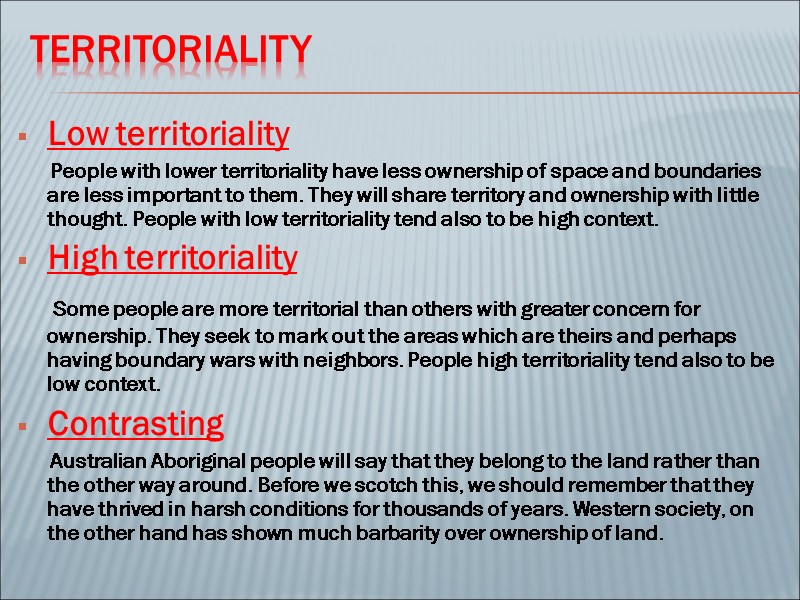
territoriality Low territoriality People with lower territoriality have less ownership of space and boundaries are less important to them. They will share territory and ownership with little thought. People with low territoriality tend also to be high context. High territoriality Some people are more territorial than others with greater concern for ownership. They seek to mark out the areas which are theirs and perhaps having boundary wars with neighbors. People high territoriality tend also to be low context. Contrasting Australian Aboriginal people will say that they belong to the land rather than the other way around. Before we scotch this, we should remember that they have thrived in harsh conditions for thousands of years. Western society, on the other hand has shown much barbarity over ownership of land.

Thank you for your attention
23998-edward_hall's_cultural_factors.ppt
- Количество слайдов: 10

